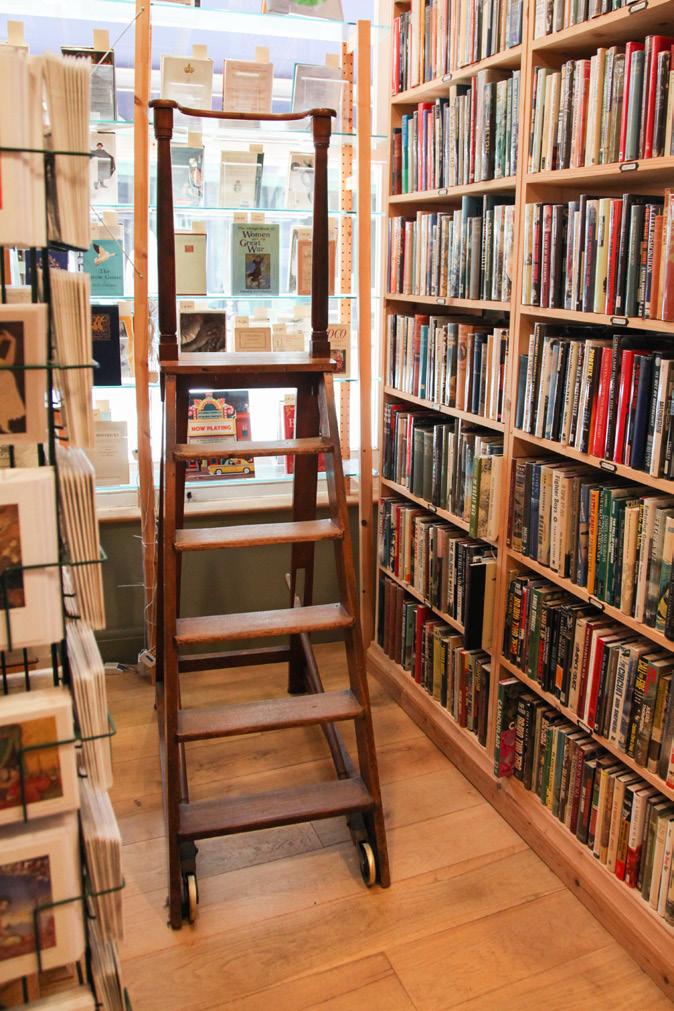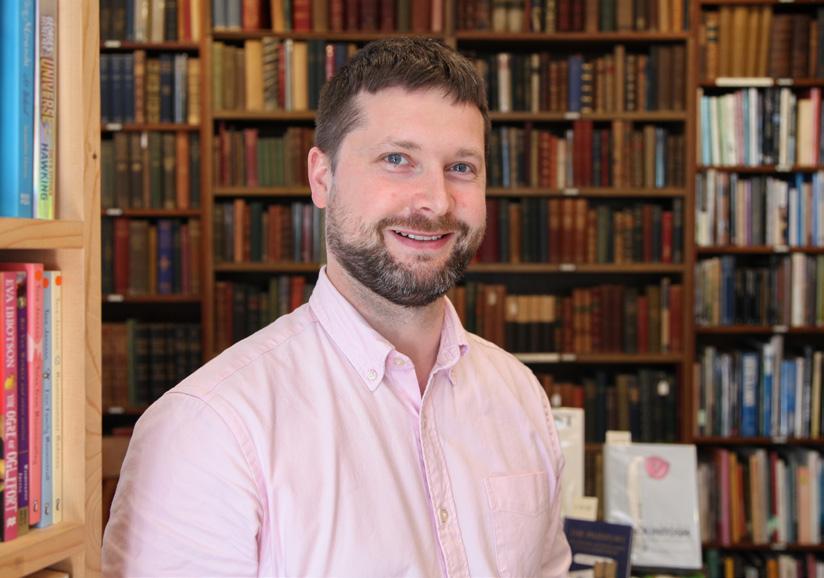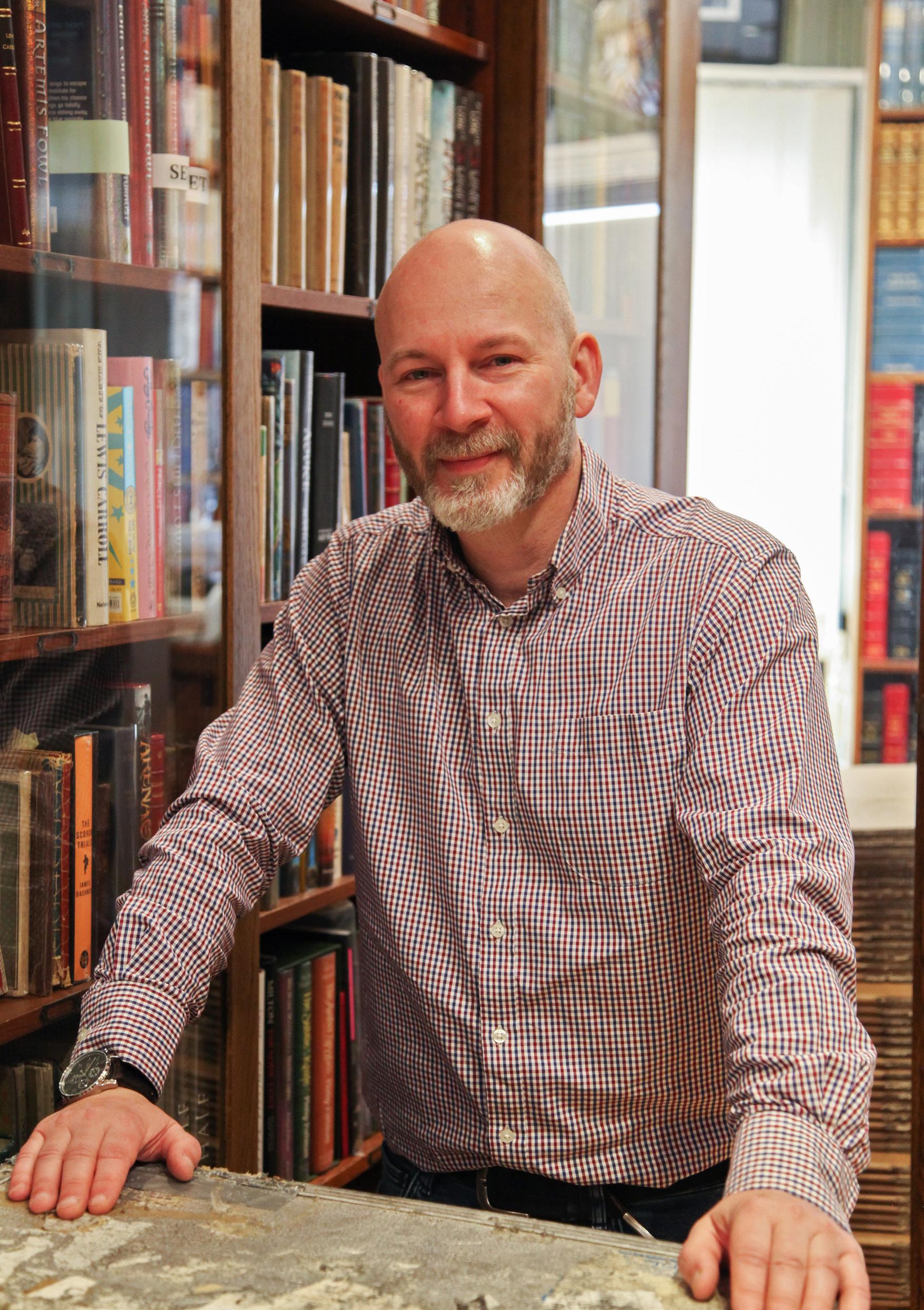
4 minute read
A NOVEL RETAILER
Judging books by their covers
Specialising in James Bond, and operating since 1898, Hall’s Bookshop has a license to till.
Advertisement
WWW.HALLSBOOKSHOP.COM / WWW.HARRINGTONBOOKS.CO.UK
For 124 years, the shelves of Hall’s Bookshop have groaned under the weight of lofty tomes and finest first editions. With sister business, Adriangton Harrington Rare Books, this bookworm of a building has been impressing visitors to Chapel Place through two world wars, and the war on Kindles - although the learned staff welcome reading in all its formats.
“We sell rare books, first editions, collectible books, signed and inscribed. On occasion we sell author’s manuscripts and typescripts as well, which is the very first incarnation of a book. We also look at all forms of the book, proof copies, galley copies, so these are prepublication aspects. Downstairs we also sell more affordable copies, later editions, reprints and paperbacks.
We deal in mainly 19th and 20th century English literature, although we do occasionally have some foreign books in translation, and children’s books. We try and have highlights in all areas, a little science, a little travel, history, typography, and our main specialism
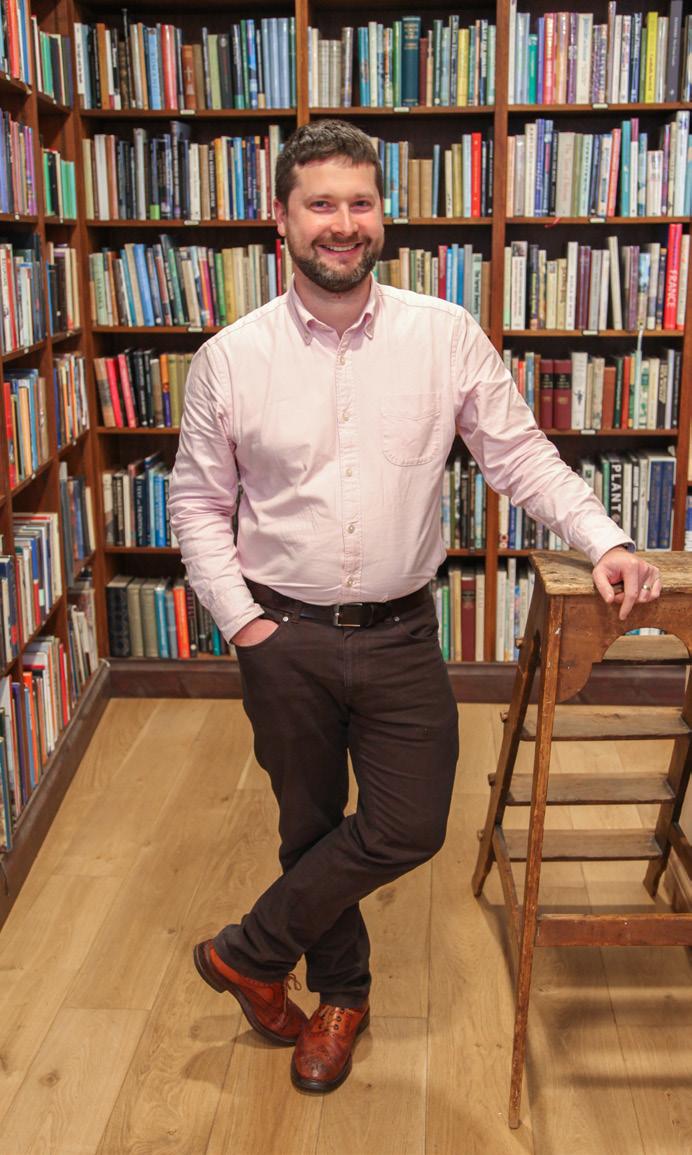
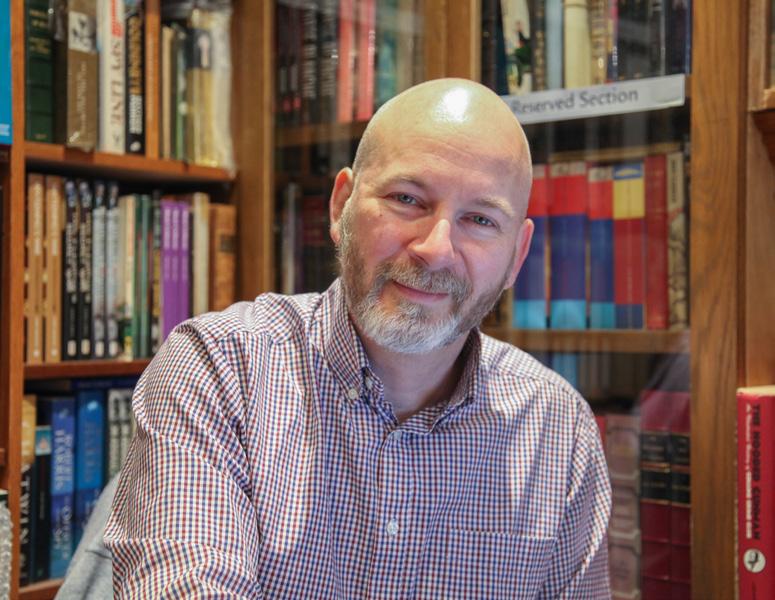
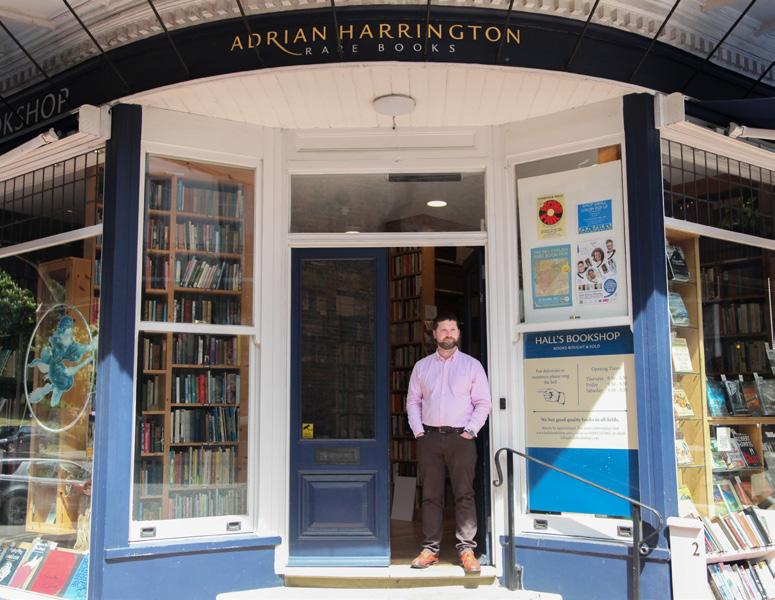
TREAT YOUR SHELF AT THIS BOOKWORM’S
PARADISE is crime fiction and espionage, in particular the James Bond novels and Ian Fleming.
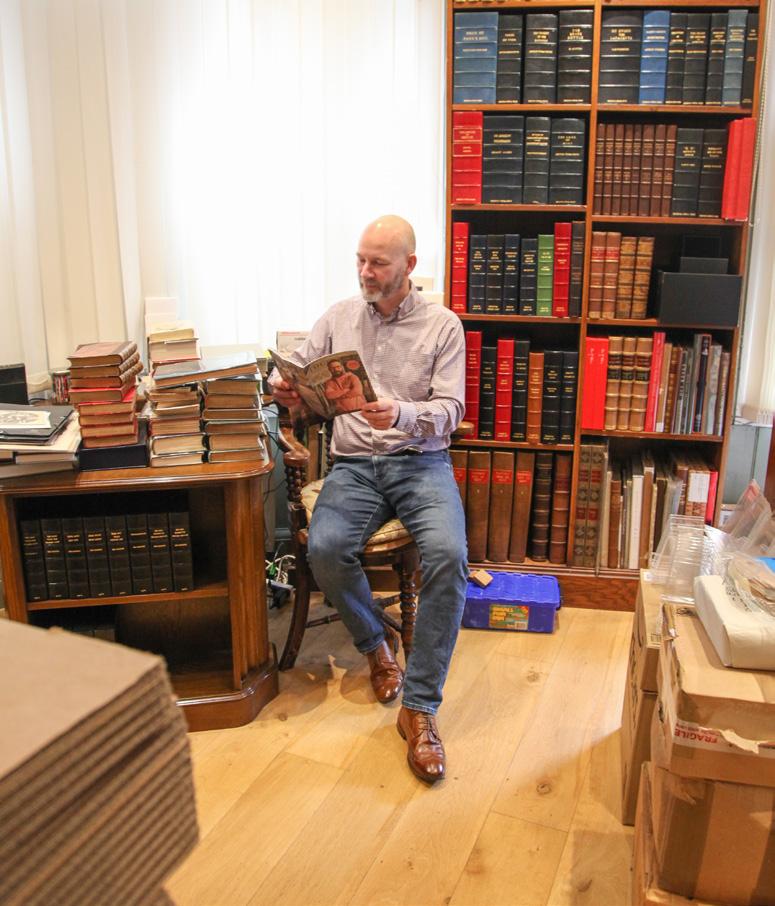
They’ve always been popular, so it’s customer demand that leads that specialism, but I have a particular interest in - and have written about - Bond, and am heavily involved of various aspects such as the Ian Fleming estate and Ian Fleming Publications, who look after the copyright for Bond. My second job other than being a bookseller is as a bibliographer, so I study the history of books, the publication, and I inform people on what to look for when searching for a first edition. I feel very fortunate because it takes me around the world going to book fairs and sourcing materials and placing them with institutions.
We deal at the very highest level, wth some amazing collections and manuscripts, but then we sell the popular James Bond paperbacks downstairs, which are just going to be a few pounds each, so it really does cover all budgets and people can start collecting Bond very easily.
There’s a difference between rarity and value; there are some incredibly rare manuscripts, we occassionally come uncross unpublished items, so there might only be one known copy, but value depends on demand and supply. So the Harry Potter books, the first in the series, there were only 500 copies, intended to go to schools and libraries, and they never had a dust jacket, almost like a textbook - most of those, certainly the copies that went to libraries will be library stamped, might have some kind of sticky-back plastic on them, and will be very heavily read and
lent out, so to find a fine one, a truly fine one as new, is a really difficult task and when they come up for auction they go for serious money. There was one not so long ago which made £300,000 at auction in the States, and even poor copies can go for tens of thousands. People think, hang on, it’s Harry Potter, it’s brand new, but that’s irrelevant, it’s all about the economics.
People often ask about ebooks, and Kindles, but I have no issue at all with that. We sell books that are icons, but the best thing is for people to read. If children read on a tablet, or see a film and it encourages them to read, that’s great. It’s not a competition, but it might encourage people, as they grow up or gain employment, to then want to own the original. So that’s great, it will help us. And oi course, we’re concerned with preserving books, trying to keep them in nice condition and complete, and if a Kindle means you don’t take don’t have to take 4 or 5 books on holiday that might get bumped around in your suitcase, then that’s a good thing as far as I’m concerned.
Some of our books are a few hundred years old, but they’re perfectly fine for reading. Leather was a traditional material for covering a book, but leather does dry out. It’s just like your skin, we are covered in leather, and it needs to be moisturised. So we do polish our books and renovate them, cream them, just to keep the joints supple. When they dry out, and you open the cover too fiercely, it can crack, and in extreme cases it may just break off. But if it’s kept in normal conditions, not too bright, not in direct sunlight, they can be looked after. And the more you handle a leather binding, beacuse we have oils on our hands, it actually appreciates it. The worst thing is to leave a book for 20 or 30 years and then open it and read it enthusiastically, it won’t stand up to that, but if you handle it regularly, your palms will naturally nourish the leather. Everything can be read, as long as you do it carefully.
Unless it’s really rare and fragile, perhaps with brittle paper, you don’t have to have white gloves. And certainly the things we sell, they’re to be respected, but they are there to used, and enjoyed - after all, they are your books, and the worst thing, I would say, would be to put it away where you can’t appreciate it.” ■
